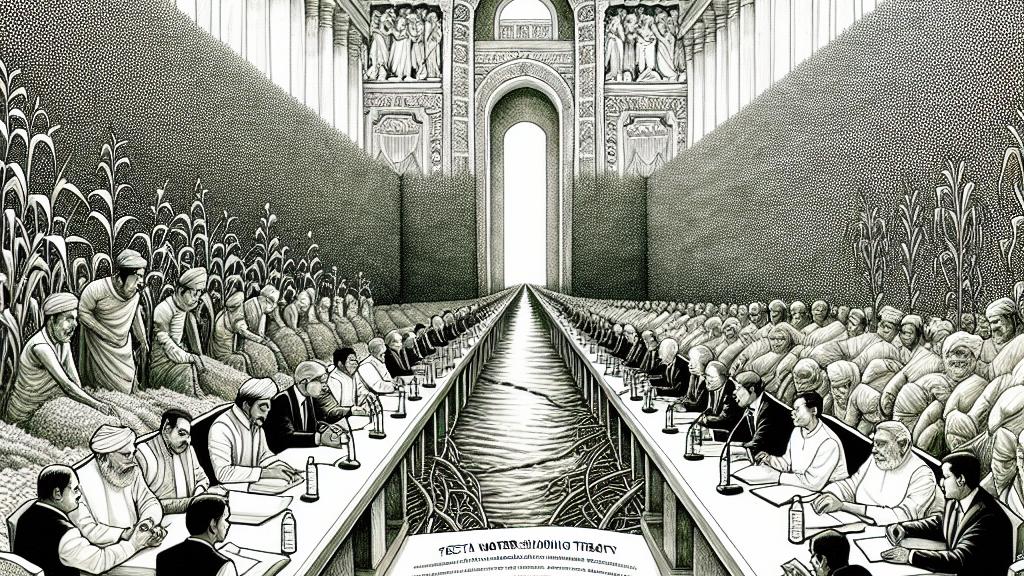Teesta Talk: Can Bangladesh and India Finally Clear the Waters?
Overview
- Bangladesh seeks to restart dialogue with India to resolve the long-standing Teesta water-sharing treaty.
- Political dynamics in West Bengal pose significant challenges to the agreement.
- International legal frameworks could play a crucial role in resolving disputes if bilateral negotiations fail.

Renewed Efforts for a Lifeline
In Dhaka, the personnel of Bangladesh's interim government has reignited discussions about the unresolved Teesta water-sharing treaty with India. Notably, Syeda Rizwana Hasan, an advisor on water resources, emphasized the essential nature of the treaty for both agricultural resilience and population sustenance in Bangladesh. A draft agreement prepared back in 2011 stands pending due to objections from West Bengal’s Chief Minister, Mamata Banerjee, who raised concerns regarding water scarcity within her state. The new government seeks to build upon this draft as a foundation for negotiations, marking a potential shift in momentum as it emphasizes finding cooperative solutions to a problem that has lingered for over a decade, which could ultimately benefit millions in both nations.
India's Upstream Control and Local Concerns
India's pivotal role as the upper-riparian state makes it crucial to the discussions surrounding the Teesta River, which originates from the Himalayas, flows through Sikkim and West Bengal, before flowing into Bangladesh. The river is vital for agriculture and daily needs for people along its banks. However, West Bengal's anxiety about the proposed water-sharing agreement underlines domestic resistance, reflecting fears that diminishing river flow could threaten local agricultural practices. This local opposition complicates negotiations, illustrating how internal political environments can greatly influence international relations. Nevertheless, both nations share deep-rooted historical and cultural ties that could further motivate them to indulge in constructive dialogue and seek pragmatic solutions to their water-sharing dilemma.
The Path Forward: International Frameworks and Sustainability
As the dialogue progresses, Bangladesh leader Hasan may advocate for compliance with international legal frameworks on transboundary river management. Principles articulated in documents such as The Helsinki Rules serve as a guide for equitable water sharing, emphasizing that upper-riparian and lower-riparian states have shared responsibilities. If bilateral negotiations falter, Bangladesh may consider bringing the issue to international platforms to assert its claims regarding water rights, urging that international norms must be respected to ensure a stable and equitable flow of the Teesta. The complex dynamics between the two countries highlight the necessity for robust, transparent agreements that not only address immediate concerns but also lay the groundwork for a cooperative future, fostering mutual benefits for the populations relying on these vital water resources.

Loading...